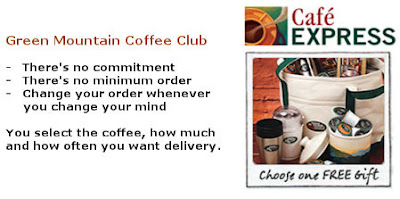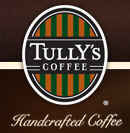
Green Mountain Coffee Roasters is growing right along side the fastest growing portion of the of the coffee industry, the high-end specialty coffee market.
Green Mountain Coffee is a product leader in this category, they emphasize quality and enjoyment of their product. Green Mountain's target market is no question wholesaler's.
Green Mountain Coffee has over 5,000 wholesale accounts that currently account for 94% of their revenue. In this marketing plan I thoroughly go through who their wholesale customers are, the relationships they have with them, and how they plan to use them in their overall strategy to obtain more customers in different market segments. Also in this report, I discuss the competitiveness of the industry Green Mountain is in, as well as the opportunities, threats and other outside influences that can have a positive or negative effect on the company.
In general this report is an overview of the company that is Green Mountain Coffee Roasters, their industry, target markets, environmental influence's, competition, and most importantly their strategy, along with my critique.
Green Mountain Coffee Roasters began in 1981 as a small café in rural Vermont. Today the company boasts a 90,000 square feet, state-of-the-art distribution & roasting facility in Waterbury, Vermont, where the company is based. Green Mountain Coffee Roasters has a strong regional presence in the Northeast and is gaining Market share in other parts of the country. It has an extensive wholesale operation as well as a direct mail and Internet businesses.
Green Mountain Coffee, Inc. is a leader in the specialty coffee industry. The company roasts 60 varieties of high quality Arabica coffees including single-origin, estate, certified organic proprietary blends and flavored coffee's that it sells all under the Green Mountain Coffee Roasters name brand. The majority of their revenue comes from their aforementioned wholesale operation, which services restaurant, supermarket, specialty food store, convenience store, food service, hotel room hospitality, university, airline, train and coffee office service customers.
The company went public in 1993 and is listed on the NASDAQ National Market under the symbol GMCR; for the Fiscal year ended September 25th, 1999, net sales increased 16.2% to a record $64,881,000.
The coffee industry has shifted towards specialty coffees such as Green Mountain's in the recent years, and The Company competes against all sellers of specialty coffee. These specialty coffees are higher priced then normal coffees; the increased demand for them has been driven by consumer education, a wider availability of high quality coffee such as Green Mountain's, and an emergence of up scale coffee shops throughout the country.
According to the National Coffee Association of USA, Inc. four out of five American consumers consider themselves coffee drinkers; on average an estimated 400 million cups of coffee are consumed in the US each day. Next to oil, coffee is the highest traded commodity in the world. Specialty coffees are becoming increasingly popular in the US, and the fastest growing segment of the coffee market. Green Mountain Coffee has become an established and premier brand in the specialty coffee market. This market is highly competitive, and because of the high growth of this segment, large companies have entered the market.
Proctor & Gamble distributes Millstone into supermarkets, which is a direct substitute for Green Mountain Coffee; Starbucks recently signed a distribution agreement with Phillip Morris/ Kraft foods that will enable Starbucks to place its Coffee in supermarkets as well. Starbucks has also been growing in its wholesale operations, and hopes to leverage its brand name that is continually growing due its popular neighborhood coffee houses and trendy style.
In the office coffee, convenience store and service arena, General Food's, Proctor & Gamble, and Sara Lee are direct competitors. In the direct sales area of the market, which accounted for 6% of Green Mountain's revenue in 1998, their major competitor is a division of General Foods, Gevalia. As you can see there are a lot of large multinational corporations in the market that have resources available to them that Green Mountain does not have. Starbucks is the only other major independent producer of high-end coffees.
As this new market expands and smaller companies strive to build brand awareness and larger companies attempt to earn larger market shares and build brand equity, competition will only intensify.
Let's look at major Social and Economic factors that are influencing Green Mountain Coffee and whether or not these factors can be looked at as opportunity or a threat to Green Mountain.
Major social trends include a movement toward more natural and healthy products, as well as lifestyles. This trend can only help Green Mountain. With its Organic line of five different coffee flavors having been introduced on Earth Day, 1998 and available along side all its normal line, Green Mountain is aggressively pursuing this new market.
Another social trend is that of America becoming more concerned with the environment. Green Mountain works closely with Conservation International, and the Rainforest Alliance. In 1998 the company was invited to present a Environmental case study at the Future 500 annual conference on its biodegradable coffee bag that it developed in partnership with 3M corporation. The Company has also sponsored a Yale research project to find more environmental and labor healthy ways of producing Coffee. The study perpetuates Green Mountain's continuing efforts to develop long-term relationships with its coffee-producing partners. It also continues Green Mountains overall support for positive environmental and social initiatives, such as their Stewardship line of coffee that come only from farms that exhibit extraordinary care of their land and their employees.
The environment is an issue that Green Mountain takes very seriously and its many different environmental projects can only strengthen the company in the mind of the consumer.
The extraordinary economic situation that is currently happening in America and aroung the world has given rise to financial concern for all Americans. Green Mountain Coffee is a high-end product that is pricier than normal coffee's on the market. The overall economic prosperity of the country gives consumers less disposable income and a lower propensity to buy higher priced consumer goods such as Green Mountains.
The extraordinary growth of e-commerce has in most cases forced companies to either develop an effective e-commerce solution. This new use of technology can be looked upon certainly as an opportunity or a threat depending on the success of Green Mountain in this area. They recently opened a web site that offers a variety of information on the company and secure online purchasing of Green Mountains products. Initial reactions have been positive, as they have been proven to be an effective channel for new direct-mail customers. This new area of commerce is looking more like an effective medium to sell and provide information to consumers than a possible threat.
Green Mountain uses a combination of outside brokers and And direct relationships with estates for its supply of green coffees, with outside brokers providing the majority. The price of coffee is subject to high volatility. The company generally passes coffee price increases or decreases on to the customer, which means if the price of green the green coffee bean increases, or world supply of the green coffee bean decreases, the price is raised and sales could diminish.
Green Mountain publishes catalogs that offer their complete product line as well as coffee-related gifts and accessories. Much of their revenue is generated by the
Green Mountain Coffee Club. This is a program that has customized standing orders for re-shipment of their coffee in beans, ground or K-Cups.
As the secure on line purchasing that
Green Mountain Coffee's new web site offers begins to grow, direct mail should start to contribute more to total sales, as e commerce offers any-time, user friendly access to purchasing
Green Mountain Coffee products.
The presence of Green Mountain Coffee crosses over many different distribution channels and customer categories in its primary geographic market, the northeastern United States. What this does for Green Mountain is provide widespread brand exposure in a variety of settings, ease of access to Green Mountain's products, and many opportunities to sample their products. Throughout the day a consumer can consume the product: at home in the morning, at the office, at a restaurant for lunch, on an airplane or train to a destination, at convenience stores or a supermarket, and even at a movie theater.
Green Mountain believes that it's coffee's convenient availability throughout the day for consumer trial is a significant competitive advantage and a key component of their strategy. Consumers who sample their coffee by the cup are likely to develop a taste for Green Mountain Coffee and seek it out through other available distribution channels. Company studies have shown that consumer trial at one level of distribution will lead to subsequent purchases in another area of distribution. As brand awareness increases through trial by consumers of Green Mountain's coffee by the cup, demand for whole bean sales of Green Mountain's coffee for home consumption will also increase.
As Green Mountain's brand equity is built, they believe wholesale expansion will typically continue through customers such as supermarkets, convenience stores and specialty food stores, who in turn sell Green Mountains whole bean to customers. Green Mountain sees this expansion process as capitalizing on the cup/whole bean inter-relationship. This relationship is designed to increase Green Mountain's geographic share in already strong areas, increase sales density in those areas and according to Robert Stiller, CEO: drive operational and brand-equity efficiencies.
By principally leveraging the companies strong wholesale distribution channel, Green Mountain wants to introduce its products in selected markets across the US and internationally. Green Mountains target market is still going to be wholesalers, and for them to grow an integral part of their growth strategy will be increasing sales to retailers who sell whole bean coffee.
Green Mountain Coffee Roasters purchased Keurig the company that makes single cup coffee makers for which Green Mountain is responsible for the packaging of the K-Cup Coffees that are used in the Keurig coffee makers.
They will try to identify new customers such as chain and franchise convenient stores and office coffee services, i.e. the same type of wholesalers they have now, and use these customers for not only additional revenue, but enhance the consumer trial of their product. Green Mountain feels that their core competency is the extremely high quality and convenience of their product. This is something Green Mountain believes the customer can recognize, and that Green Mountain has been and will continue to market in the future.
There is no doubt that Green Mountain is a product leadership type of company. It seems they really pride themselves on the product they produce as being the best in the industry. They project this in their ideas about their wholesale customers.
They seem to be hyper-focused on something that they are very good at; developing relationships with wholesale customers. Green Mountain sees their relationships with these customers as their avenue into other markets, which I think is a positive strategy. With the limited business knowledge that I have, I was very impressed with
Green Mountain Coffee and this strategy. They seem to be hyper-focused on something that they are very good at; developing relationships with wholesale customers and then using these relationships to enter gain brand awareness, as well as brand equity.
Green Mountain Coffee makes an excellent cup of coffee, whether using
K-Cups Coffee and a
Keurig Brewer or ground coffee in your favorite coffee maker.









